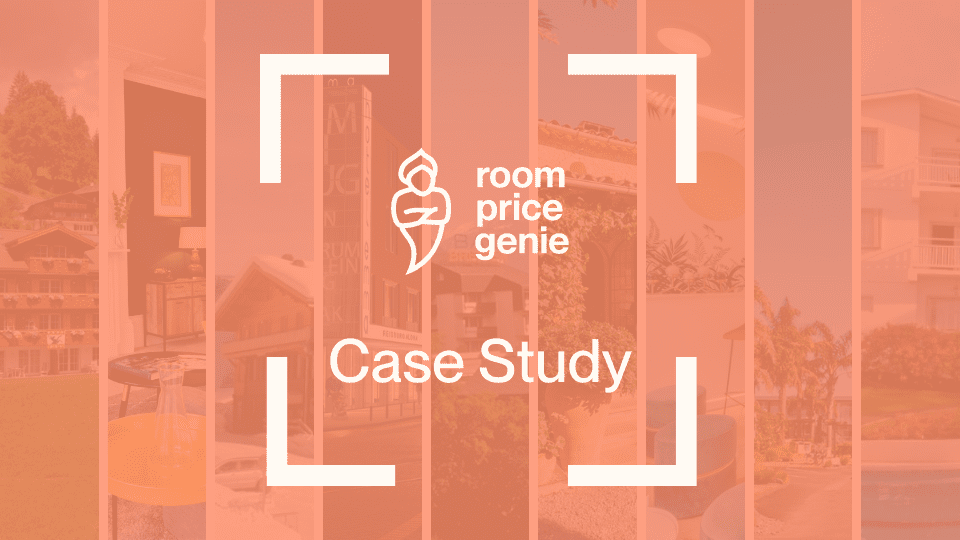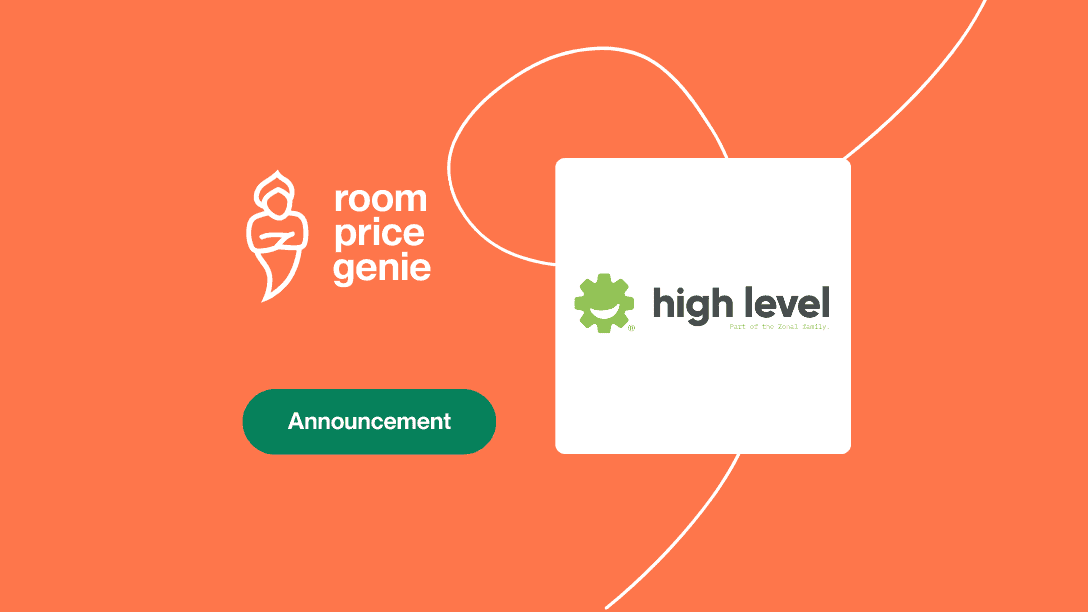Hotel revenue management is about more than just making the most money for your room tonight
We often hear hotels saying that they don’t change their prices because regular customers like the fact that their prices stay the same. Their feeling is that consistency builds loyalty.
This is certainly true. To some extent we are all creatures of habit. We like the familiar. If we know that a hotel we like is going to be the same price, maybe this does make us more likely to book next time. I am a big believer in the importance of psychology and that we should respect it.
But do you know when your customers most appreciate your prices staying the same? It’s when you are cheaper than everyone else.
I spoke to one London hotel owner who didn’t change his prices when the Olympics were being held. Everyone around him was charging three times as much but he kept his prices the same as ever. And he had very happy customers. Really delighted customers. Not customers who were necessarily going to book again, but very contented ones all the same.
He was really pleased with this. But I wasn’t convinced it was good business. I asked him if he really needed to effectively give an envelope with £200 in cash to each one of his residents every night of the Olympics to get happy customers. It would have cost him over £30,000 to get these happy customers. Maybe he could just offer good service instead?
The fact is that people nowadays do expect hotels to have changing prices. They know that in order to manage demand it is a necessity. They also expect to pay a lot more during the Olympics. They do not hold it against you.
Within reason.
This is where ideas from behavioural economics can be useful. Hotel revenue management is not just about getting the most money possible for your rooms in the next week. It is about building a brand that maximises revenue in the long term. And to understand this, we need to understand the psychology of decision making. The work of the likes of Daniel Kahneman and Richard Thaler holds relevance in the field of hotel revenue management.
This post is about the psychological impacts of pricing too high or too low. Much of this post is based on chapter 7 of Kelly McGuire’s book Hotel Pricing in a Social World. She researched the field of Revenue Management at Cornell University, which is a world leader in the research of hospitality management.
Need a little clarity? Watch the video below to learn more from revenue management expert and Director of Masters at Les Roches Global Hospitality, Scott Dahl about maximum and minimum pricing.
RPG: What are the things you should take into consideration when setting your minimum and maximum prices?
Don’t price your rooms too high
What happens if someone really needs a room but the only one available costs three times its normal price? Imagine that there is no obvious reason for this; the hotels are just too busy. In fact, the price is a fair price, in that there are not many rooms left in the city and this is the price that customers are willing to pay.
Whether the price is ‘fair’ or not, though, if the hotel is charging much more than the value perceived by the guest when they stay there, the risk is that they feel taken advantage of. They will leave the hotel feeling that they were exploited because of the circumstance. They won’t feel that they paid a price equivalent to the value of the product they received.
We are often looking for evidence that confirms our pre-conceived expectations. If people think they are getting a bad deal, they are on the lookout for evidence against you; and you will see this either in the form of complaints or negative reviews. On the other hand, if you offer them a room at the price-point they are expecting, they will be looking for evidence that confirms their good judgement.
When this happens, the negative effects on the hotel can hit in three ways. First, review scores will be poor. Second, they will definitely not be promoting your hotel to their friends. And finally, the negative feelings they have make them unlikely to book again.
McGuire researched this topic. One large hotel owner found, when their hotel charged a price which, while aligned with the market, was higher than the guests might have typically paid for that brand, that it negatively impacted their reviews.
“I noticed a direct correlation between higher prices and negative consumer reviews . Even though the rest of the market was priced at that level , our guests who were very familiar with the brand weren’t expecting a price that high , so they held the hotel to higher standards , and punished us more because of it . When the pricing got out of alignment with the brand promise and consumer expectations , the value proposition suffered . ”
Whilst a reasonable variation in prices is to be expected, there is damage to your reputation if you are perceived to be price-gouging. As McGuire puts it:
“Consumers believe that they are entitled to a reasonable price, but they also believe that firms are entitled to a reasonable profit (Kahneman et al . 1986 ; Thaler 1985 ) . They understand that the airlines may have to raise ticket prices when fuel prices increase or restaurants may have to charge more for lettuce when there is a drought in California. However, consumers react negatively to firms that try to take actions that result in “unreasonable” profits, seeing these firms as unfairly taking advantage of consumers. For example, raising the price of a Coke as the outdoor temperature rises could be considered “unreasonable” profit seeking. Remember how much trouble Amazon got into when they were caught charging different prices for the same book to different customers?”
What does this mean in practice? I would say that outside of exceptional circumstances (like major events) you should not charge more than around 50% more than your standard price for that time of year. If demand is still high, consider putting minimum stay requirements in – this gets more revenue without having the same impact on reputation. In this range, you can not fairly be accused of gouging.
In exceptional circumstances where people expect to pay a lot and you are unlikely to get repeat custom, for example a cup final nearby, the situation is different. Here you can charge whatever gets you the most revenue.
Don’t be too cheap either
There are two main reasons not to sell your rooms too cheap. The first, is that it may, counterproductively, put off customers that want a good quality hotel. The price may suggest to them low quality. One hotel chain manager describes here what happened when they priced their hotel too low:
“We have a newer hotel that is quite large and in a very competitive market, so as we introduced the hotel, we tried to generate awareness and drive demand by offering a lower price. When we lowered price too much, closer to the mass market level, we actually generated less demand than at a higher price point. This didn’t make sense to us until we realized that we were sending contradictory signals to the consumers. We were advertising a luxury experience but at a near mass market price. The price didn’t match the promise, and consumers got confused, so they just didn’t book us. When we brought the price back up, bookings increased.”
The other reason to worry about being too cheap is that it affects people’s future expectations. Think how much you expect to pay for a pint of beer. We can call this the ‘reference price’. If you go to a pub and find that it costs twice as much as you were expecting you are less likely to buy it, even though you can easily afford it. Even if that is the normal price in that area.
So, you need to be very careful about where people perceive your reference price to be – how much they expect to pay. People set their reference price at what they paid last time so if you charge too little, people may baulk at paying your full price next time.
As McGuire puts it:
Reference Price A reference price is what consumers expect to pay for a product or service, based on their own experience or what they hear from other consumers. The reference price is not based on any objective measures, simply what they consider “ normal ” (Kahneman et al . 1986 ; Thaler 1985 ). They will compare any future prices they see to this reference price. If the current price is too high when compared to the reference price, they will consider the price unfair. While reference prices can change over time, the more exposure the consumer has to a price, the stronger that price as a reference becomes.
This is one of the reasons why the revenue manager of that midscale chain hotel described earlier had so many problems with reputation when the hotel was priced high. Even if it was aligned with pricing in the market, the reference price in consumers’ mind was lower, so they were more critical of the value of the purchase.
The concept of reference price is one reason hotels find it so difficult to raise prices after long periods of deep discounting. The discounted price becomes the consumers’ reference price over time, so they will compare all future prices to that reference. If hotels raise prices too drastically, or too quickly, the consumers’ reference price expectation is violated, and they feel the firm is trying to take advantage of them. They will book with a competitor whose pricing is closer to their expectations, or complain about value through social channels.
Hotels need to be very careful about how and where they publish discounted rates, as the longer and more widely available these rates, the more likely they are to become the reference price.
Rate fences and private rates can help maintain the reference price while generating needed revenue. Another way to get around the reference price is to obscure it by packaging the product with add – on services whose prices might not be as familiar to the consumer. This could be spa treatments, meals, in – room amenities, theater tickets, or Internet access. These elements change the basic product such that consumers cannot rely as heavily on their previous experience for value judgments. Another great technique is the buy two nights, get one free promotion. This is actually a 33 percent discount across three nights, but instead of exposing consumers to a discounted rate for each of three nights, they are exposed to the regular rate for two nights. This results in a deal that will drive demand but maintains the reference price when the deal is no longer necessary.
What does this mean in practice? In terms of price, we would recommend not going lower than 60% of your standard price at the time of year. This makes the reset to normal prices not so difficult.
If you do still have rooms to sell and want to go cheaper, you should make sure to disguise your prices. You can do this by going through opaque platforms like Priceline, or through tour operators that disguise the price by packaging your hotel with transport etc.
What should you do?
So how to get it right? McGuire makes these six recommendations (for larger hotels) for when you want to go low or high:
Have confidence. All signs are pointing to consumers accepting variable pricing practices in hotels without negative consequences, so routine revenue management actions are likely very safe. You should be careful about how you introduce dramatic changes or new programs, however. Make sure your marketing department reads this section before they put out their next promotion. It could also be a good topic of discussion for your next revenue meeting.
Use discounts, not surcharges. Whenever possible, frame pricing as discounts rather than surcharges. For example, you get a reduced rate if you book ahead of time, take a room without a view, or pay in advance. You never “pay more” for last – minute access or an ocean view.
Build logical rate fences. Rate fences help you ensure limited access to discounts, but also protect you from unfairness perceptions; 21 – day advance purchase, association memberships, room locations, or amenities are all good ways to build incremental business without risking negative reactions. Protect the reference price.
Avoid making deep discounts widely available, or publishing them widely for long durations. The more exposure the general public has to a discount, the more likely it will become the reference price, and you’ll have difficulty raising your price when conditions warrant. Use rate fences, such as private channels, to help protect the reference price . Another good trick is providing a night free with the purchase of several nights at full price. For a three – night stay, it’s the same as offering 33 percent off, but consumers see the full price for the room, not a discounted price.
Hide the price of the core product. If you fear damage to the reference price, you can always bundle the core product with add – on services that provide value but change the offering. The actual price of each element is masked, so the reference price is preserved.
Be transparent. Provide as much information as possible to your consumers about your pricing strategy. Train your staff to remind the consumers why they are paying the price they are paying. This will help not only with fairness perceptions in the short term, but to build familiarity over time, leading to even greater acceptance. It could be a great sales tactic. For example, “This is a particularly busy weekend for us, but if you wanted to book the following weekend, the price will be less” shifts demand where you need it and / or helps the consumer understand why they are paying what they pay. I strongly encourage you to learn more about behavioral economic theory and how it applies to revenue management.
Where does RoomPriceGenie come in?
At RoomPriceGenie, we optimize the pricing to get as much income for you as possible, but within the constraints set by you. You are always in control of the minimum and maximum price charged (we can help by suggesting industry standards) so you can stay on the path to happy customers and happy you. Revenue management for your hotel has never been this simple.
And if you liked this post, why not sign up to our email list for more revenue management tips? You can cancel at any time.








